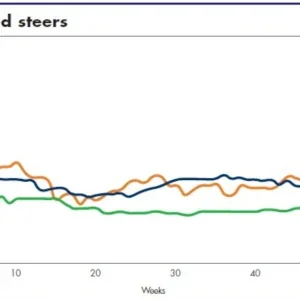German finishing chemical manufacturers Langro-Chemie are celebrating their 70th anniversary this year and, like many other companies in the leather industry, they are still a family business. The company are currently in the hands of third-generation family member Tilo Schumacher and his brother and employ around 50 people at their facilities in the centre of Stuttgart.
Langro-Chemie have been occupying the Stuttgart building since 1933 when the company bought the former soap factory building but space has slowly become an issue as the company have expanded. The building covers around 500 sq m and Langro-Chemie would rather expand than move to a completely new location, but attempts to acquire adjoining land have so far been unsuccessful.
One of Langro-Chemie’s most recent developments is their UV-Treatment Process. This is a completely different reaction process to normal whereby the leather is first chemically treated and dried and then passed through a UV-polymerisation dryer where it is exposed to a photo initiator illumination process. As a result, the interwoven chemical chain of the polyurethane is divided into varying lengths. This division influences the relationship between the flexibility and the durability of the leather.
‘This is a long-term project for us and we hope that we are ahead of our competitors’, explains Tilo Schumacher. ‘It has been difficult to transfer the concept from the laboratory, but we’re getting excellent results now. We’re looking for a tannery to install the system and work with it every day. This shouldn’t be too difficult given that our customers are always asking us if we’ve got anything new.
‘The technology itself isn’t new but it’s the first time it’s been incorporated into the leather manufacturing process. We’re proud of having the idea, but it hasn’t been easy and, at one stage, we had to decide whether to continue. But we carried on and our perseverance has paid off.’
The UV-Treatment Process is just one area of development for Langro-Chemie at present. The company are also researching more ecological products, particularly for the automotive sector. ‘Automotive leathers need to be NMP-free which they were, until the analysis was improved and they found some more, so now that has to be removed as well’, Schumacher says.
‘In general, the leather industry in Germany is experiencing difficulties at present’, he continues. ‘There isn’t any shoe upper production in Germany any more, only automotive and upholstery manufacturers.
‘But additional global problems such as the crisis in Iraq are certainly not helping the situation. We need to resolve these problems as soon as possible as it seems that everyone is holding their breath at the moment. Once the global situation settles down, hopefully people will start buying bags and shoes again.
‘However, business is good for us at present’, explains Schumacher. Last year, we produced 4,000 tonnes of chemicals which is quite an achievement for a company who specialise in finishing chemicals, and we’re currently working at full capacity. For us, 2002 was a good year and we’re hoping 2003 will be even better.
‘The German upholstery market is particularly struggling. Wilka is a famous furniture company here in Germany and they’ve recently been declared bankrupt. On the other hand, people in the automotive industry are smiling at the moment as car manufacturers are increasingly using leather interiors as standard. Audi now incorporate leather into 65% of their cars, and this figure is increasing. Other manufacturers such as BMW are realising that today’s leathers are heavily coated and are now turning back to the old fashioned methods of leather manufacture, and luckily they are one of our customers.’
‘One of the keys to our success is the service we provide’, Schumacher continues. ‘Leather producers want results quicker and quicker these days and our technical expertise provides manufacturers with the ideas and advice they need.
‘And if one of our products becomes less popular, we will not cut it from our product portfolio. If it’s a product that even just a few of our customers rely on, then we will continue production. We are a specialist company and will always continue to be.’
Looking further a field, Langro-Chemie export around 86% of their products. ‘We’re an international company and business moves around, but this works to our benefit’, explains Schumacher.
The company set up a subsidiary in Novo Hamburgo in Brazil ten years ago with research and production facilities. ‘US shoe retailers want their shoes in the shops six weeks after placing the order. This is often too fast for China, but Brazil can keep up.’
Beyond the production facility in Brazil, the remaining products are manufactured at the Stuttgart headquarters. ‘We are selling a large proportion of dyestuffs to China as producers there realise that they cannot acquire the same quality from a local producer. Not everything is a question of price.’






